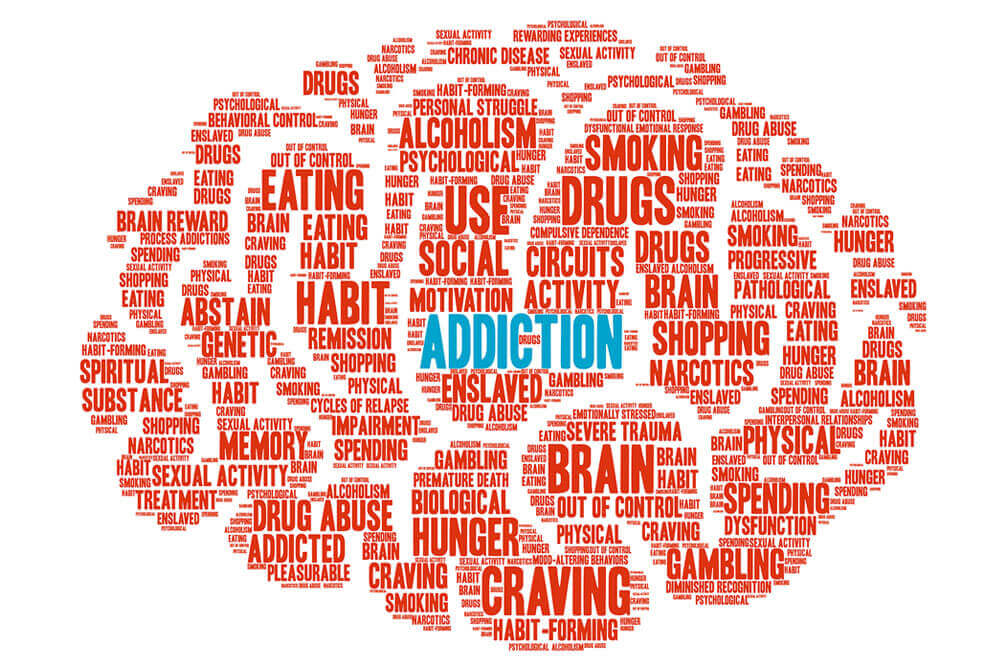
Addiction is a familiar term. We see it in news headlines, doctor’s offices, and internet columns; and we hear it bantered around in general conversation. The kicker is most people associate addiction with substance abuse such as illegal drugs (think heroin, cocaine, methamphetamines), alcohol, cigarettes, or prescription drugs. Behavioral addictions are more difficult to understand and in fact, some people find it hard to believe it is even possible to become addicted to a behavior.
However, it is entirely possible and relatively common to get hooked on everything from sex to food; everyday activities that at first glance do not seem to possess the power to take over a person’s life. Even so, addiction’s pull demands more opportunities to engage in a particular behavior, making it difficult to manage normal activities.
What is Addictive Behavior?
Addictive behavior is a specific behavior or related stimulus to a behavior that is rewarding and/or reinforcing. Very similar to substance addiction, the desire to experience the behavior’s high increases to the point that a person continues to seek out the activity regardless of the consequences. Also in tune with substance addiction, a person can suffer similar withdrawal symptoms when a particular behavior is missing from their life.
Media have of course fully embraced the idea of behavioral addiction, especially the attention grabber types such as shopping addiction, sex addiction, or cutting (self-injury). However, within the professional realm of psychiatry and psychology, the behavior is not considered an addiction until the following metrics are met:
- A person experiences negative consequences caused directly by continued or extreme engagement in a behavior. An ideal example is when someone gambles so much they lose their home or job.
- Severe struggles with mental or physical health due directly to the behavior or the inability to stop it.
- Significant relationship difficulties at home or in the workplace.
- Inability to stop engaging in a behavior.
Interestingly, most of us engage in dozens or even hundreds of different activities or behaviors every day and each of those comes with its own consequences. In general, we are smart about choosing behaviors with the intent they will enhance a particular experience or part of our lives. Let’s say you’re hungry and rummaging the cupboard or perusing a vending machine; you know eating a Twinkie isn’t the best choice so you go for something nutritious that will fill you up.
But a person with a food addiction might eat even when they are not hungry and eat almost anything they can find, regardless of its health content; or eat large quantities of food.
Types of Behavioral Addictions
Behavioral addictions come in many forms. Here are some of the most common:
- Sex
- Video games
- Food
- Exercise
- Work
- Love
- Tattoo
- Pornography
- Gambling
In special regard to the last type on this list, gambling is an addiction so closely resembling drug and alcohol addiction that the American Psychiatric Association classifies it as an addictive disorder. In fact, gambling addictions affect the same brain receptors as drug addiction and treatment for gambling disorder is often comprised of therapy settings and processes as drug and alcohol abuse.
A variety of influences contribute to the development of each of these addictive behaviors, including substance abuse, genetics, and personality. In regard to the latter, the term “addictive personality” is common in general conversation as well as professional research. In fact, despite the absence of official medial criteria related to addiction, treatment, and recovery; research nevertheless confirms similar personality traits among people suffering from substance abuse addictions and behavioral addictions.
Fortunately, people with behavioral addictions will often become simply worn out from the toll their behavior takes on their lives, their health, and their effect on family and friends. In a similar vein, they may endure significant losses—a personal relationship, financial, career—that makes them realize that the wonderfully exciting thing they couldn’t do without it is now a terrible burden.
For example, relationships are often the first to suffer when an addictive behavior takes over. Trust between partners, family members, or friends dwindles and pressure mounts on others to cover up someone’s behavior addiction or work harder to compensate for it.
Treatment for Behavioral Addiction
In an interesting development, the prevalence of behavioral disorders has increased at a nearly identical pace as the meteoric pace of technology. Even so, these types of addictions are relatively new in the medical and mental health worlds and we have no reliable, standardized process of diagnosing them.
However, there is positive news to share. Qualified mental health professionals can be a great help in encouraging people to address and overcome behavioral addictions and develop healthy alternatives to handling the issues. Cognitive behavioral therapy, group therapy, and talk therapy are a few examples of treatments recently proven to be effective remedies.
Family therapy is another successful approach to treating behavioral addiction, by providing insight into how an addict’s actions affect family and friends. When realizing how their behavior hurts others, an addict can often identify the courage needed to change.
Professionals are continually developing new methods for treating a wide range of addictions, and specialized clinics are available to treat many types of behavioral addictions in particular. There is also a great benefit to seeing a psychiatrist or psychologist skilled in assisting people with overcoming difficult emotional situations and work toward making positive improvements in their lives.
For more information on behavioral addiction and treatment, contact Restore Health and Wellness at (888) 979-4570. We offer comprehensive programs for behavioral addiction treatment and use proven methods to help you or a loved one break free from addiction. Visit us at 6918 Owensmouth Ave Canoga Park, CA 91303. 24/7 Admissions (818) 722-9019. On-Site Contact (818) 806-3914.




